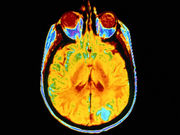But symptoms tend to subside once antiretroviral drugs are given
MONDAY, June 13, 2016 (HealthDay News) — Many newly infected HIV patients experience neurological symptoms, but they tend to be mild and subside after initiation of antiretroviral treatment, according to a study published online June 10 in Neurology.
Among 139 people in Thailand infected with HIV three to 56 days before entering the study, tests revealed that 53 percent had neurological findings. Thirty-three percent had cognitive deficits, 34 percent had motor control difficulties, and 20 percent had neuropathy, the investigators found. Many had more than one symptom. One participant had Guillain-Barré syndrome, the only severe condition in the group.
All the patients were offered and began antiretroviral treatment when they were diagnosed with HIV infection. Ninety percent of the neurological symptoms had resolved after one month of treatment, but 9 percent continued to have symptoms six months later. The researchers also found that neurological symptoms were associated with higher mean plasma log10 HIV RNA at diagnosis.
“While the findings were mild, it is clear that HIV affects the nervous system within days of infection,” study author Joanna Hellmuth, M.D., a clinical fellow in the department of neurology at the University of California, San Francisco, said in a university news release. “Since the majority of these neurologic issues were resolved with treatment, our study reinforces recommendations that people at risk for HIV test often and start antiretroviral treatment immediately if they are infected.”
Copyright © 2016 HealthDay. All rights reserved.








